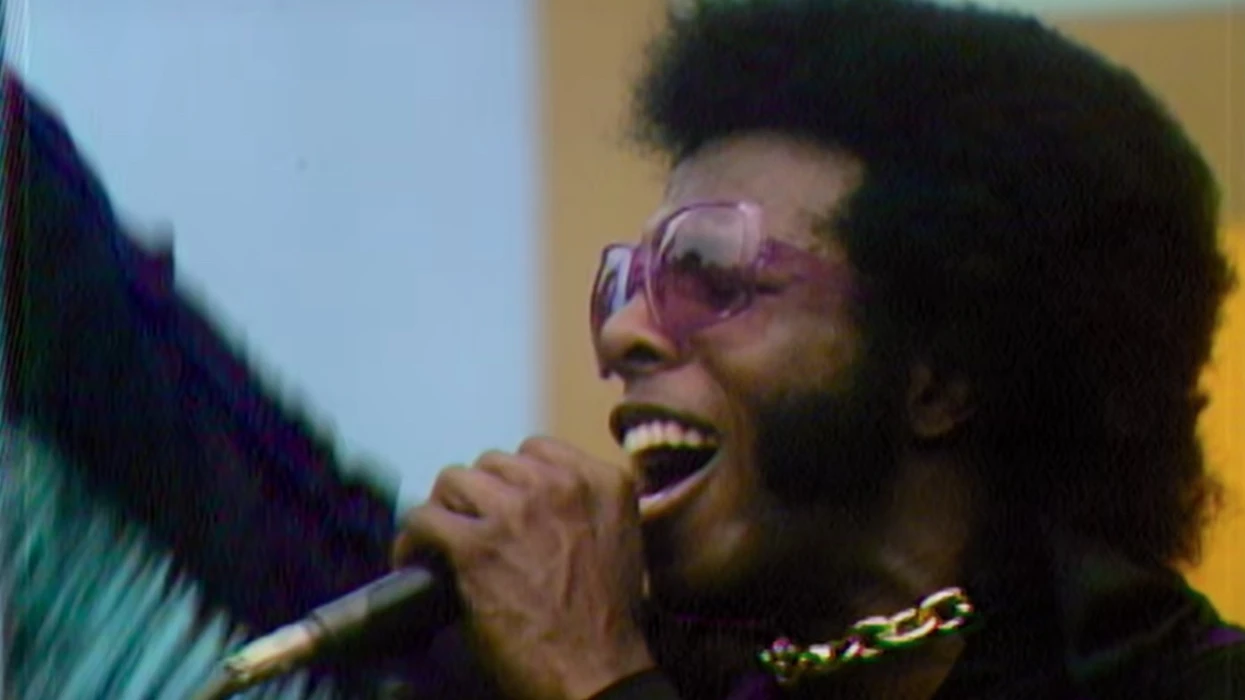Sly and the Family Stone were most recently front and center in my thoughts thanks to Questlove’s excellent documentary, “SLY LIVES! (a.k.a The Burden of Black Genius).” I reviewed the film for The Boston Globe and Robert Daniels reviewed it on this site. We both awarded the film ***1/2.
Unlike “Summer of Soul,” which also featured the band and its influential leader, Sylvester Stewart (aka Sly Stone), Questlove’s follow-up is a darker affair that celebrates its subject while truthfully documenting the demise of the band he founded.
Without Sly Stone, there would be no Prince; like Stone, he played numerous instruments and wrote all his songs. There would also be no samples for LL Cool J’s “Mama Said Knock You Out” or Janet Jackson’s “Rhythm Nation,” and no paeans to everyday people or ideas for hot fun in the summertime. The unforgettable bass line that propelled “If You Want Me To Stay” through radio speakers and the Hughes Brothers’ violent crime noir, “Dead Presidents,” would never be plucked.
The world would be a less fulfilling place without Sly Stone, both in general, and more specifically, at the family affair we call the cookout.
Thankfully, the singer/songwriter existed to grace us with his gifts through more hits than you might remember. On the flip side, he thanked us for letting him be himself (again). And despite the trials that led him into drug addiction, and the burden of Black genius that Questlove’s title mentions, Stone walked among the living for 82 years. His musical journey ended on June 9, 2025, two days after what would have been Prince’s 67th birthday.
Born in Denton, Texas on March 15, 1943, Stone grew up in San Francisco’s North Bay area. His early musical expertise included mastering the piano, guitar, bass and drums. He would put this talent to great use throughout the lifetime of Sly and the Family Stone, the band he founded in 1966.
The group contained actual family—Sly’s guitarist brother, Freddie, and keyboard playing sister, Rose. They were joined by trumpet player Cynthia Robinson, Larry Graham on bass, Jerry Martini on saxophone and Greg Errico on drums. Sly and the Family Stone became the first interracial and mixed gender band to have enormous success. Together they cranked out hits starting with 1968’s inclusive call to shake your booty, “Dance to the Music.” That’s the song where Cynthia famously yelled out “all the squares go home!”
I’m sure the squares stuck around. Otherwise, they’d miss such hits as the glorious anthem to racial harmony, “Everyday People.” If they hung around longer, they were privy to 1969’s banger, “Thank You (Falettinme Be Mice Elf Agin),” a song that contains the immortal opening lyric “lookin’ at the Devil, grinnin’ at his gun” and a bass line so potent it would knock the right angles out of those squares.
The group’s 1969 album, “Stand” included the hits “I Want to Take You Higher” and “Sing a Simple Song.” The title song, easily one of the best of Stone’s compositions, is a call to stand for what you believe. This task won’t be easy. “There’s a cross for you to bear,” sings Stone, “things to go through if you’re going anywhere.”
Optimism wasn’t the only thing that Sly Stone wrote about—he did create a 1971 album called “There’s a Riot Going On.” That record’s eye-catching album cover, with its redesign of the American flag with nine-pointed stars on a black square (I used to think they were bullet holes when I was a kid), indicated that darker themes were contained within the grooves.
Though the original band dissolved in 1975, Sly and the Family Stone continued making music until 1983. Stone disappeared from public view, and the biggest mystery was whether he would appear with the original bandmembers at their induction into the Rock ‘n Roll Hall of Fame in 1993. (He showed up, much to their surprise.) Stone also appeared briefly in a Grammy tribute to his old band, sporting a Mohawk and stealing the show for the three minutes he performed.
In 2023, Stone penned his own memoir entitled “Thank You (Falettinme Be Mice Elf Agin),” for which Questlove provided a foreword. I’m sure he discussed his trials and tribulations (his drug use, domestic violence and his rumored homelessness) far better than I ever could.
But I can tell you a story about a lonely and confused little kid whose outlook was forever changed by “Everybody Is a Star.” While I’d wager today that my favorite Sly Stone song is “If You Want Me To Stay,” that wasn’t the case decades earlier. There’s a line in “Everybody is a Star” that made me tear up as a kid, because it felt like Sly was delivering a message I should hear:
“I love you for who you are, not the one you feel you need to be.” Even today, I occasionally tear up when I hear that lyric.
Perhaps the burden of Black genius includes speaking to our people in such a way that we’re uplifted. It’s a tough mission, considering what we must endure in this world. Through his music, Sly Stone was more than up to the task. I hope he’s jamming with Prince right now.












